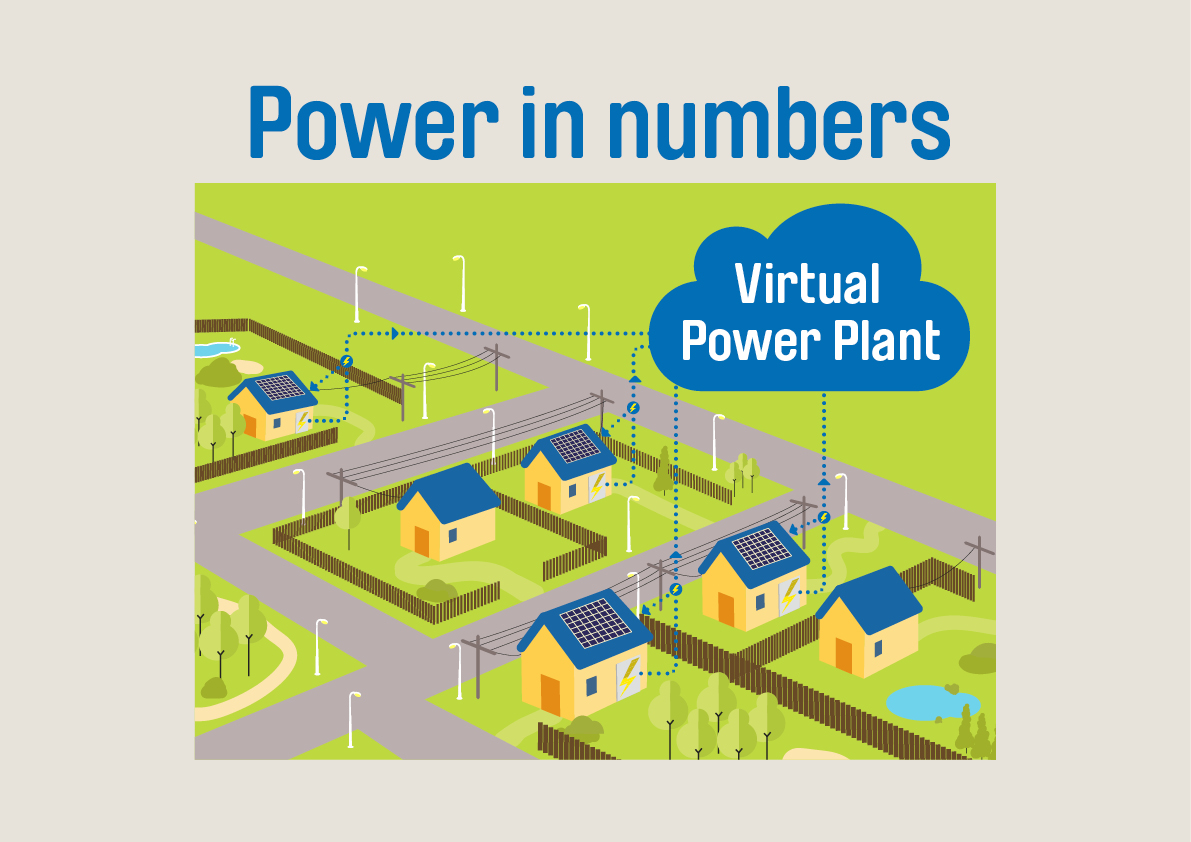Solar Power Virtually

Rooftop solar is the most adoptable form of renewable energy for residences and commercial businesses, making it key to a clean energy future and leaving the majority of people, about 80%, having the ability to accelerate its adoption. Right now solar is poised to disrupt the entire utility industry. The short term potential has industry lobbyists scrambling to maintain the utility monopoly through measures like Amendment 1 of 2016 in Florida and actions like underhanded rate increases as in Arizona and Minnesota. In reality, industry leaders should see how they can transition into the new model and determine how their infrastructure can be re-purposed. The question becomes, what does a utility do if all power generation is decentralized? They manage virtual power plants, if they are smart, as what is being tested in New York.
The greatest drawback to solar is that it only works when the sun is out. This is overcome through the addition of battery banks and other storage capacity technologies, like compressed air. The harnessing of this storage is what makes up the virtual power plant. The established net metering system itself allows a utility to absorb the excess power from a solar array, allowing it to be stored or delivered to another user. A task that can be developed into a market and allows the maintenance of their ageing infrastructure. This concept is largely limited by utility fears and market misperception. When allowed to develop solar will be common place simply because it makes sense.
How the virtual power plant works is that a neighborhood or block of solar arrays will produce more energy than it needs and that excess energy can be transmitted measured units. Thereby making the excess power into a unit of trade like the stock market trades shares. The utility companies become the maintenance facilities for the interconnection lines as they do now and expand their existing metering into a managed commodity, with blockchain technology the concept becomes easier. Creating a funding mechanism for the infrastructure and preserving their existence. The alternative is to have to industry face the accelerated decline they foresee from greater affordability and acceptance of solar power.
Even to continue with the existing fossil fuel model solar power is quickly allowing utilities to save money doing exactly what they are doing now. Study after study is proving that solar homes and businesses do not harm non-solar buildings. How this happens is that these non-polluting buildings lower the peak operating loads, meaning that peaker plants can sit dormant. The need for new facilities can be set aside while maintaining the ability to ramp up production through the dormant peakers. Any funds that utilities earmarked can than be transitioned into creating the virtual market and its capabilities or put into addressing any ageing infrastructure. All reducing the environmental impact of power generation and turning efforts to reversing what some refer to as climate change, all through direct and indirect use of solar power.
At the end of the day utility companies have played a vital role in every aspect of our community, but the continued pollution and environmental damage has become too much for the planet and society to bear. Better technology is here and is being adopted by more and more homeowners daily. It would be most agreeable for those who have the training and ability to maintain their jobs, so no further middle class jobs are lost, although the solar boom continues to create more and has the fuel to create further jobs into the foreseeable future. Fighting the growth of the existing boom is just antithetical to the common sense approach of facilitating it. There are billions more to be gained by the power that be through moving beyond big natural gas facilities and pipelines. Solar is the solution to fossil fuels and people taking advantage of it is how the world will change since utilities refuse to see how working with it and learning to manage the virtual power it creates would keep them alive. History has plenty of room to discuss them as we discuss the horse and buggy today.
Go forth and spread sunshine,
Clifford Mitchem
Independent Energy Advisor
Clean Renewable Energy Worldwide
